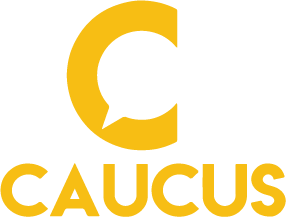 This article was originally published with The Manila Times on November 15, 2018.
This article was originally published with The Manila Times on November 15, 2018.
I get invited by a lot of companies to talk about future jobs. Increasingly, many business leaders and even employees are raising concerns about what jobs lie ahead and what necessary skills are needed to adequately prepare for the 4th Industrial Revolution (4IR).
The fusion of different technologies in the digital, physical and biological spheres is disrupting businesses and organizations the world over, profoundly impacting the way we live, learn, work, and relate to each other. Specifically, “four technological advances—ubiquitous high-speed mobile internet; artificial intelligence (AI); widespread adoption of big data analytics; and cloud technology—are set to dominate the 2018–2022 period as drivers are positively affecting business growth”, according to the “The Future of Jobs Report 2018” released by the World Economic Forum (WEF).
The workplace is at the center of it where the nature of work is transformed to become more agile and high-value. But the same report urgently cautions that “as workforce transformations accelerate, the window of opportunity for proactive management of this change is closing fast, and business, government and workers must proactively plan and implement a new vision for the global labor market.”
This is where the practice of organization development (OD) gets to the centerstage. It is the strategic process of helping organizations improve through planned and systematic change in the attitudes, beliefs, and values of the employees through creation and reinforcement of long-term programs.
The operative word is “systematic” – there has to be a deliberate and methodical approach to help the organization and the workers adapt to the changes. It starts with a careful organization-wide analysis of the current situation and of the future requirements, and employment of “intervention” techniques through structured activities” such as experiential exercises, questionnaires, attitude surveys, relevant group discussions and others to build new skills among and changed behaviors of employees. It is not confined only to training employees,. It encompasses the whole spectrum of behavior change.
In fact, it continues to be subsumed under human resources (HR). OD is related to HR because it deals with enhancing individual and organizational capacity for greater performance but it is not HR.
Human resource management (HRM) is responsible for three major areas: staffing, employee compensation and benefits, and defining/designing work; which are all important in keeping the organization stable in the short term. But OD is becoming key to prepare and transform the organization for the future.
In advanced economies, OD units have been carved out from HR to belong to either Corporate Services, Corporate Strategy, or Internal Consulting. But ideally, OD should work in tandem with the Chief Digital Officer (CDO) or Chief Transformation Officer (CTO). The latter two roles have become common in many large organizations including in local conglomerates. They report directly to the CEO and primarily responsible for charting the digitization and digital transformation of the organization.
Just like OD being carved out from HR, CDO and CTO are carved out from the information technology department which is responsible with “keeping the lights on” in an organization. CEOs discover that it’s hard to combine operations with the transformation function because of competing mindsets – the former is to keep the status quo, while the latter is to transform from the status quo.
Similarly, OD should be a strategic role who can report directly to the CEO or under the CTO, aptly called Chief OD Officer or CODO. They are a new breed of executives that combine knowledge in strategy, technology, human behavior, and change management. They help the organization members to prepare and adapt to the changes brought about by technology, competition, and employee profiles.
While OD is already a mature concept and practice, the gap is in the understanding of the extent and gravity of behavior change involved in digital transformation. This is brought about by the transformational nature of new technologies such as cloud, analytics, artificial intelligence, and Internet-of-Things that threaten to replace existing practices and processes; hence, encountering much resistance from employees.
As an example, the use of cloud technologies in digital transformation has changed the way information technology employees procure, maintain, and operate IT systems in a company in such a way that they need entirely new skills and new ways of working.
OD practitioners need to understand these new ways of working because of digital transformation to formulate intervention programs for sustained behavior change. The band-aid approach of many is to conduct trainings to employees. I have seen this approach fail as employees revert to their old ways. OD should encompass structured activities such as enablement of adoption and behavior change on a broad scale and promotion of good practices that reinforce the new behavior.
The success of digital transformation ultimately depends on how employees adapt to the new ways of working brought about by new technologies, and not on the choice of technology alone. The CODO should play an active role in the organization behavior change plan alongside the digital transformation plan of the CEO.
The author is President & CEO of Hungry Workhorse Consultancy Inc, a digital and culture transformation firm, and Co-founder of Caucus Inc, a data privacy and business advisory firm. He teaches strategic management in the MBA Program of De La Salle University. The author may be emailed at reylugtu@gmail.com.
